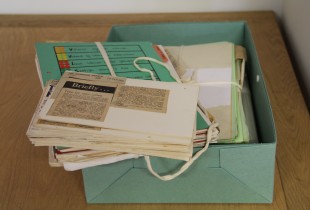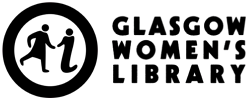I am Essi and I am a final year politics student at The University of Glasgow. At the moment, I am undertaking a student placement at GWL. Last semester I took a course called ‘Citizenship and Democracy’. Instead of sitting an exam we were given the option to undertake a placement with an organisation that promotes active citizenship.
One of the first organisations I thought of was GWL. After all, it is only fairly recently that women have been given the same formal political rights that men have, and in reality women are still not sufficiently represented in most parliaments around the world. That is why organisations that promote women’s empowerment and recognition of women’s achievements have an important role to play in ensuring women can have their voice heard in the society.
During my placement I have had the chance to assist with Scottish Women’s Aid 40th Anniversary project. I have researched the archives in order to find references to books that women involved in SWA might have been reading, and which might have inspired their work. Reading old newsletters and newspaper articles I have also learned a lot about women’s history in Scotland.
It is inspiring to read about the work done by SWA, and their work has, among other great things, improved women’s opportunities to become active citizens who shape their communities. While citizenship is something that takes part in public, what happens in the domestic or ‘private’ sphere has a huge influence on whether that person can participate in the political sphere, where decisions that influence both public and private spheres are made.

SWA has worked hard to bring the hidden problem of domestic violence into public attention, and turned ‘a private problem’ into a public and political one. They have supported women all around Scotland in regaining autonomy over their own lives.
It is extremely difficult for a person to fully participate in the society if their most basic needs (like the need to feel safe in their own homes) are not met. And ‘becoming’ a part of the society again can be difficult, if someone else has been trying to control your life for a long time.
I think a poem by Carol, published in SWA’s ‘25 years of listening to women’ puts it very well:
“On my own, away from him – yes/On my own, apart from the world – no./How to start being a part of it again/- It’s been so long/For years not being allowed outside the door/- Without accounting for where I’d been”
It is great to see that lots of things have changed in the last forty years to make Scotland a better country for women and it is inspiring to read about women who have taken action.
However, to be honest, learning about women’s recent history in Scotland has also been a little depressing. Many times I caught myself thinking “I can’t believe it used to be like that”. Only 20-30 years ago it was still debated in Scotland whether rape is still a rape if a woman is raped by her husband.
A first female judge in Scotland was only appointed in the 90’s. A SWA newsletter reveals that in 1988 another judge had commented on a 12 year old girl, raped by a 19 year old man as follows: “She was asking for trouble”. I hope in 40 years young women can look in disbelief at the inequalities women are facing in 2016, but to achieve this, we need organisations that support women in tackling these inequalities.

Comments are closed.